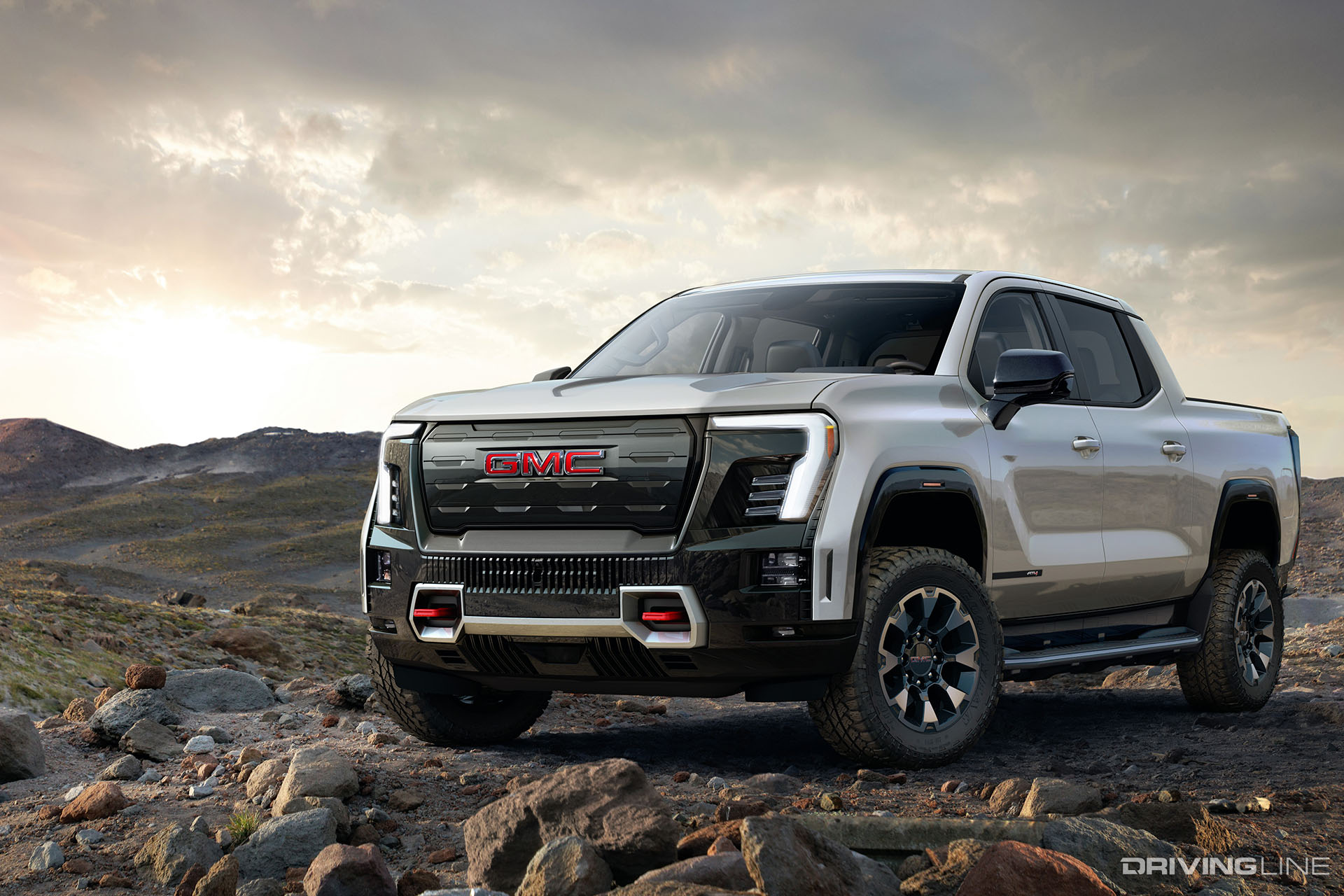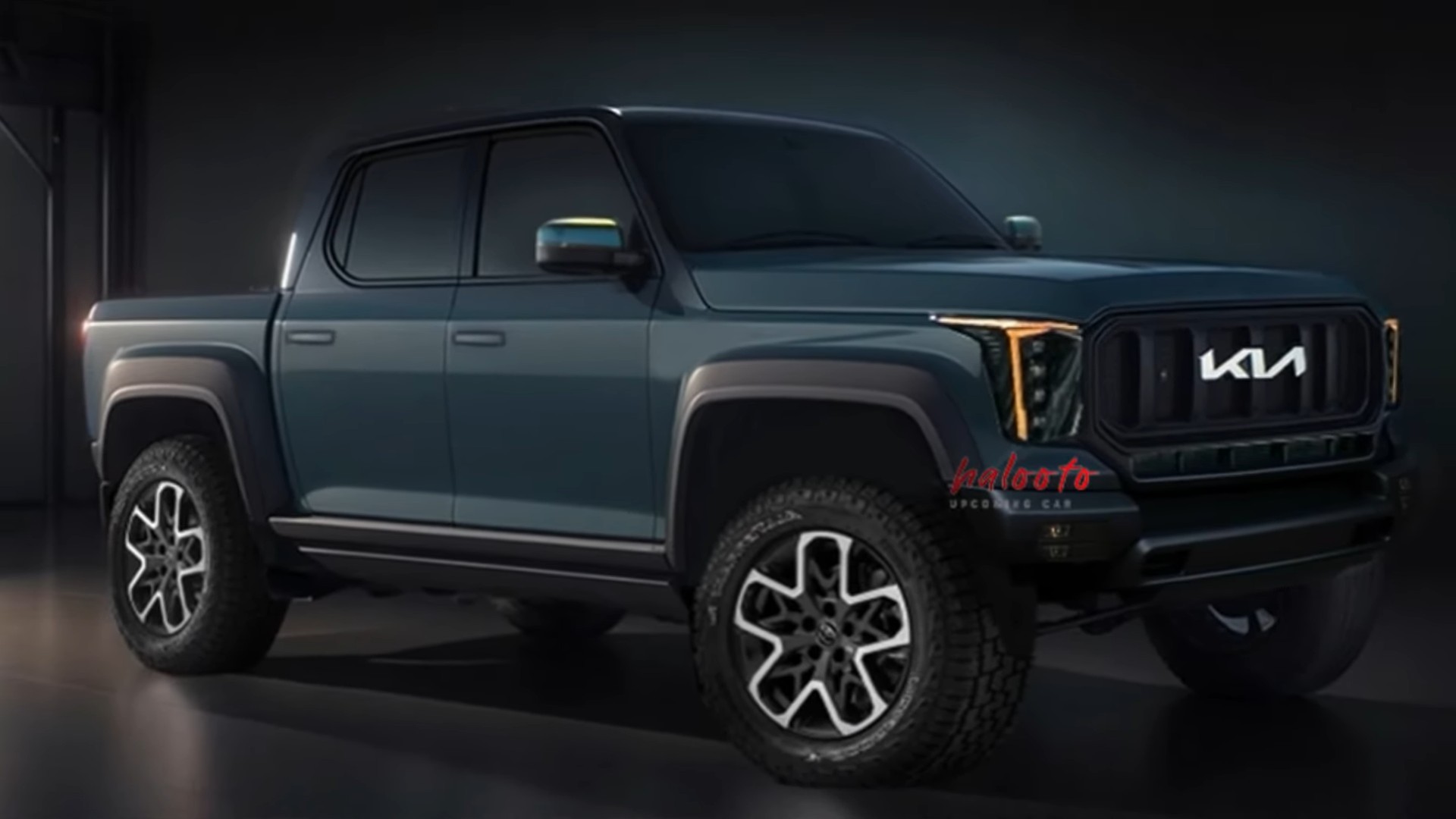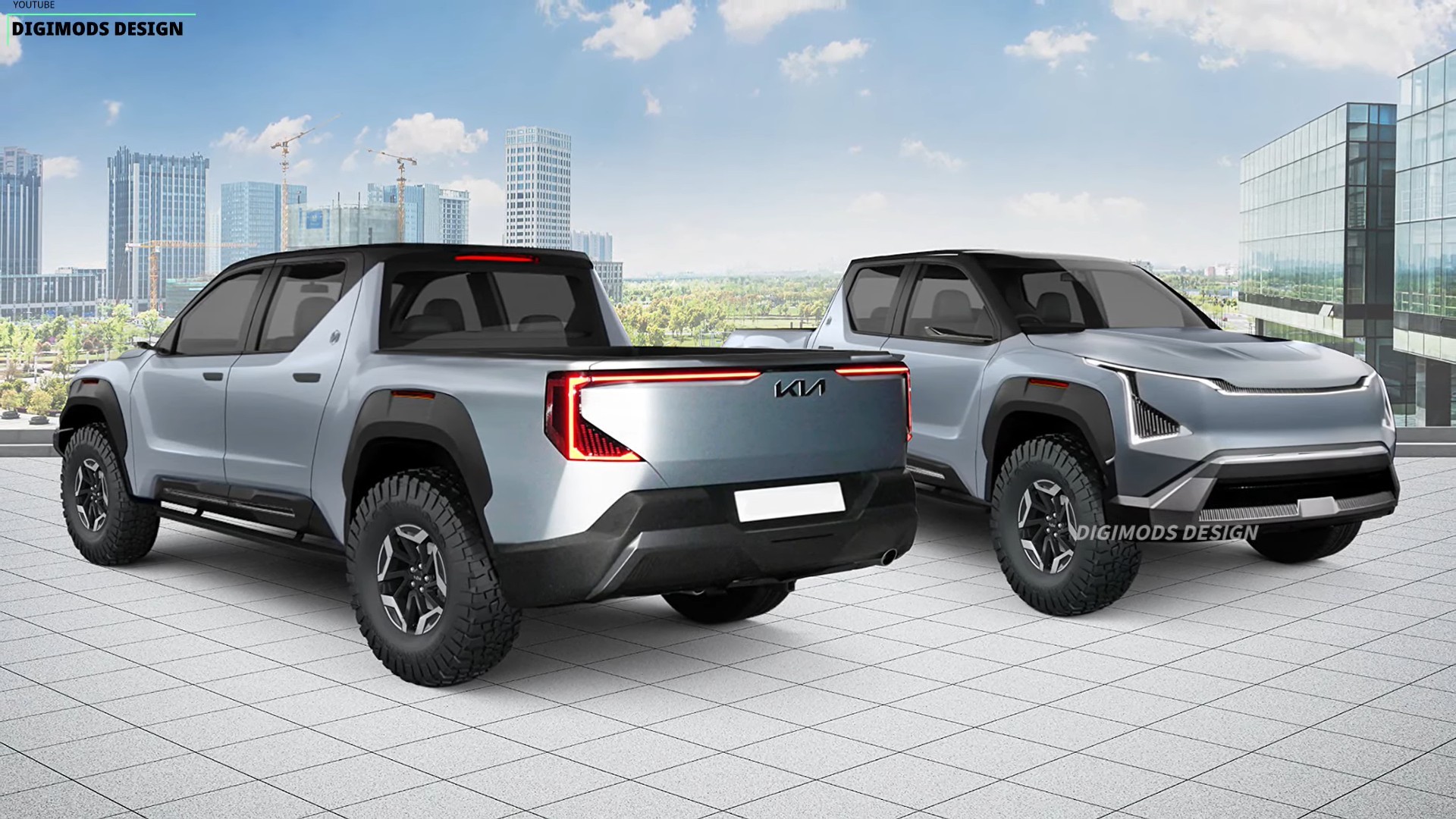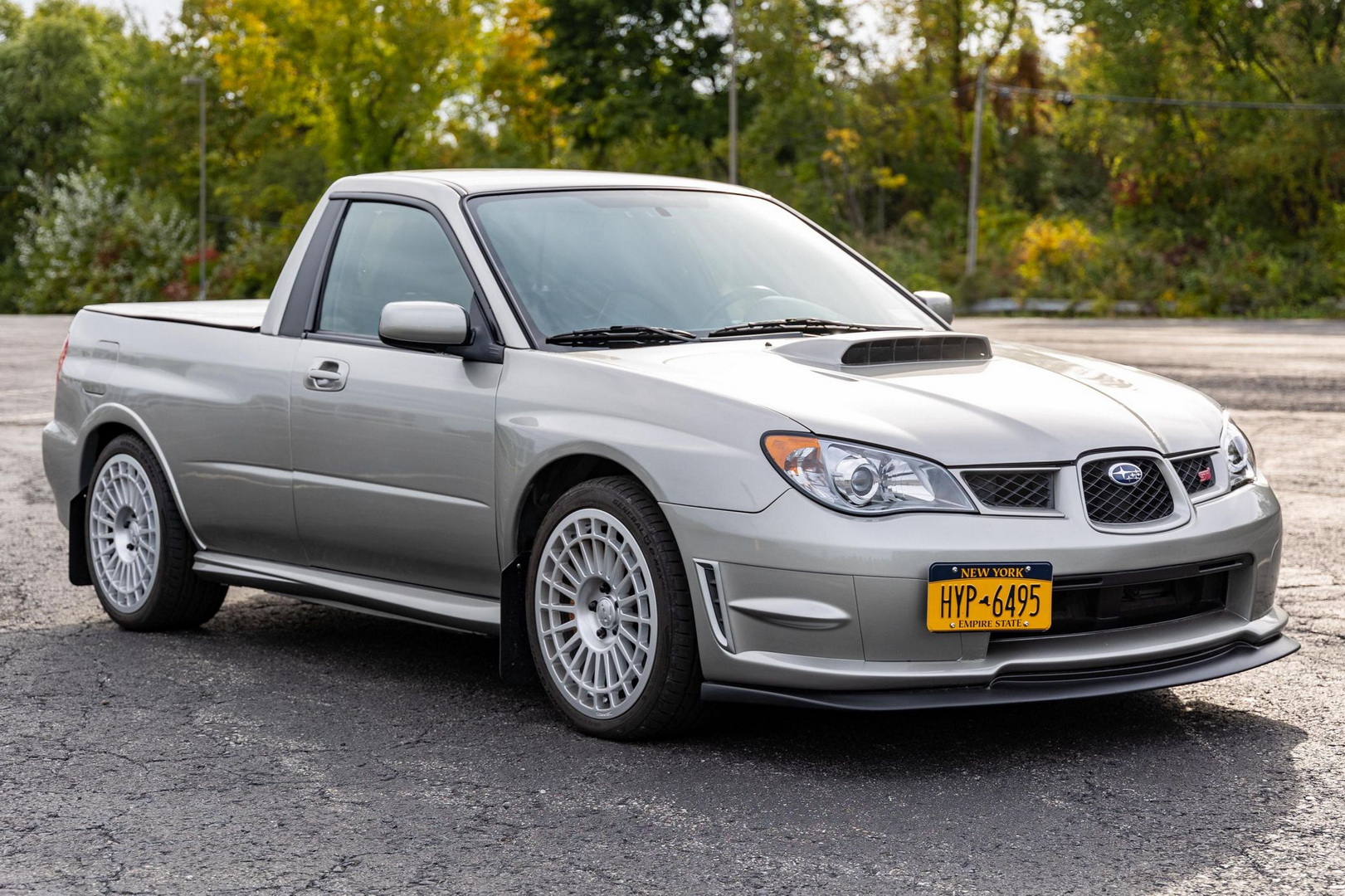Pickup Trucks Auctions: Your Comprehensive Guide to Finding Value and Victory pickup.truckstrend.com
Introduction: The Thriving World of Pickup Truck Auctions
In the vast landscape of vehicle acquisition, pickup truck auctions stand out as a dynamic and often lucrative arena for both seasoned buyers and first-time enthusiasts. Far from the polished showrooms of dealerships, these auctions offer a unique opportunity to acquire a wide range of trucks – from rugged workhorses and off-road beasts to reliable daily drivers and even rare, collectible models – often at prices significantly below retail value. Pickup truck auctions are essentially marketplaces where vehicles are sold to the highest bidder, typically in an "as-is, where-is" condition. They represent a significant segment of the automotive resale market, driven by inventory from repossessions, government surpluses, fleet liquidations, insurance write-offs, and dealer trade-ins.
Pickup Trucks Auctions: Your Comprehensive Guide to Finding Value and Victory
The allure of pickup truck auctions lies not just in the potential for substantial savings, but also in the sheer variety of vehicles available. For businesses, they offer a cost-effective way to expand or update their fleet. For individuals, they can be the gateway to owning a more powerful or capable truck than their budget might otherwise allow. However, navigating this fast-paced environment requires more than just a keen eye; it demands thorough preparation, strategic bidding, and a clear understanding of the inherent risks and rewards. This comprehensive guide will equip you with the knowledge and practical advice needed to confidently enter the world of pickup truck auctions and drive away a winner.
The Allure of Pickup Truck Auctions: Why Bid for Your Next Truck?
The reasons to consider purchasing a pickup truck through an auction are compelling and diverse, appealing to a wide spectrum of buyers. Understanding these benefits is the first step in appreciating the value proposition of this unique market.
- Significant Cost Savings: This is arguably the primary draw. Auction prices are typically wholesale, often reflecting a substantial discount compared to dealership retail prices. This can translate into thousands of dollars in savings, making a higher-trim model or a newer truck more accessible.
- Vast Selection and Variety: Auctions are melting pots of inventory. You’ll find everything from basic work trucks (Ford F-150, Chevrolet Silverado, Ram 1500) and mid-size options (Toyota Tacoma, Nissan Frontier) to heavy-duty models (F-250/350, Silverado/Sierra 2500/3500) and even specialty vehicles. This wide array includes various makes, models, years, mileages, and conditions, increasing your chances of finding the exact truck that fits your needs.
- Unique Finds and Rare Gems: Beyond common models, auctions can unearth unique or hard-to-find trucks, including classic pickups, specialized utility vehicles, or models with custom modifications. For collectors or those seeking a distinct vehicle, auctions offer unparalleled discovery opportunities.
- Transparency (with Due Diligence): Reputable auctions provide vehicle histories (like CarFax or AutoCheck reports) and allow for pre-inspection periods. While vehicles are sold "as-is," the environment often encourages a degree of transparency, allowing informed decision-making for those who do their homework.
- Efficiency for Bulk Buyers: For businesses looking to acquire multiple vehicles for their fleet, auctions offer a streamlined and efficient process to purchase several trucks in a single session, often at competitive prices.

While the benefits are clear, success hinges on understanding the auction environment and being prepared for its specific challenges.
Navigating the Auction Landscape: Types of Pickup Truck Auctions
Not all auctions are created equal. Different types of pickup truck auctions cater to various buyers and offer distinct experiences. Knowing the nuances of each can help you choose the best venue for your needs.

-
Public Auctions (Government, Police, Repossession, Fleet Auctions):
- Description: Open to the general public, these auctions feature vehicles seized by law enforcement, surplus government vehicles, repossessions from banks, or trucks liquidated from large corporate fleets.
- Pros: Often excellent prices, wide variety of common work trucks, transparent processes.
- Cons: Vehicles might have significant wear and tear, limited information prior to auction, "as-is" condition is strictly enforced.
- Examples: Local government surplus auctions, police impound auctions, bank repossession auctions.

-
Dealer-Only Auctions:
- Description: Restricted to licensed car dealers, these are wholesale markets where dealers buy and sell vehicles among themselves.
- Pros (for dealers): Access to high-quality inventory, competitive pricing for resale, professional environment.
- Cons (for public): Not accessible to the general public. If you’re an individual buyer, you’ll need to work with a licensed dealer who can bid on your behalf (which adds a fee).
- Examples: Manheim, ADESA.
-
Online Auctions:
- Description: Websites that facilitate vehicle auctions over the internet, allowing bidding from anywhere in the world. They can feature everything from clean-title vehicles to salvage/damaged trucks.
- Pros: Unparalleled convenience, global reach, extensive inventory, detailed photos and sometimes videos, often include vehicle history reports.
- Cons: Inability to physically inspect the vehicle (though third-party inspections are an option), reliance on photos and descriptions, shipping costs can be significant.
- Examples: eBay Motors, Copart (salvage/damaged vehicles), IAAI (insurance auctions), Ritchie Bros. (heavy equipment, sometimes includes heavy-duty trucks), various smaller regional online platforms.
-
Live Physical Auctions:
- Description: The classic auction experience with an auctioneer, bidders present in person, and vehicles driven across the block.
- Pros: Ability to physically inspect the vehicle (though time is limited), feel the atmosphere, direct interaction with auction staff, immediate purchase.
- Cons: Fast-paced environment can be intimidating, limited time for inspection, need to be physically present, competitive bidding can lead to overspending.
- Examples: Local independent auction houses, larger regional auction events.
Each type offers a distinct pathway to your next pickup truck. Understanding their differences is crucial for effective auction participation.
Your Step-by-Step Guide to Buying at a Pickup Truck Auction
Purchasing a pickup truck at an auction is a process that demands meticulous preparation and disciplined execution. Follow these steps to maximize your chances of a successful bid.
Before the Auction: Preparation is Paramount
-
Research and Define Your Needs:
- What kind of truck? Determine the make, model, year range, and features you need (e.g., bed size, cab style, 2WD/4WD, towing capacity).
- Market Value: Research the retail and wholesale values of your target trucks using resources like Kelley Blue Book (KBB), Edmunds, or NADA Guides. This helps set your maximum bid.
- Common Issues: Familiarize yourself with common mechanical problems or recalls associated with specific models you’re considering.
-
Set a Realistic Budget:
- Purchase Price: This is your maximum bid.
- Buyer’s Premium: An additional fee (percentage of the winning bid or flat fee) charged by the auction house. This can range from 5% to 15%.
- Taxes and Fees: Sales tax, title transfer fees, registration fees.
- Transportation: Cost of towing or driving the truck home if it’s not roadworthy or if you’re buying out of state.
- Potential Repairs: Always budget for unexpected repairs or maintenance after purchase, as auction vehicles are sold "as-is." A good rule of thumb is 10-20% of the purchase price for older vehicles.
-
Register and Understand Auction Rules:
- Most auctions require pre-registration, often involving a refundable deposit or proof of funds to obtain a bidder number.
- Thoroughly read the auction’s terms and conditions. Pay attention to payment methods, pickup deadlines, and "as-is" clauses.
-
Vehicle Inspection (The Most Critical Step):
- Pre-Auction Inspection Period: Attend the designated viewing times. This is your only chance for a hands-on assessment.
- Bring a Mechanic: If possible, bring a trusted mechanic or someone knowledgeable about vehicles. They can spot issues you might miss.
- What to Look For:
- Exterior: Rust (especially frame and undercarriage), signs of accident damage (uneven panel gaps, mismatched paint), tire condition.
- Interior: Water damage, excessive wear, functionality of electronics, HVAC.
- Engine Bay: Leaks, signs of poor maintenance, fluid levels. While you typically can’t test drive, listen for strange noises if the engine can be started.
- VIN Check: Run the Vehicle Identification Number (VIN) through services like CarFax or AutoCheck to check for accident history, salvage titles, flood damage, odometer discrepancies, and service records. This is non-negotiable.
- Under the Hood/Chassis: Look for fluid leaks, bent frames, or excessive corrosion.
- Be Skeptical: Assume every vehicle has an issue until proven otherwise.
During the Auction: Bidding Smart
- Arrive Early (for Live Auctions): Get a good spot, re-inspect vehicles, and get a feel for the bidding pace.
- Understand Bidding Increments: Know how much the price will jump with each bid.
- Stick to Your Budget: It’s easy to get caught up in the excitement. Decide your absolute maximum bid for each truck before bidding starts and do not exceed it. Factor in all fees and potential repair costs.
- Observe and Learn: If it’s your first time, attend an auction purely as a spectator to understand the flow before you start bidding.
- Bid Confidently and Clearly: When you bid, make eye contact with the auctioneer and make your intentions clear.
- Don’t Be Afraid to Walk Away: If the price goes beyond your budget or if you have any lingering doubts about a truck, let it go. There will always be other auctions and other trucks.
After the Auction: The Final Steps
- Payment: Be prepared to pay immediately or within a very short window (usually 24-48 hours). Most auctions accept cashier’s checks, wire transfers, or credit cards (with an added fee).
- Transportation: Arrange for pickup or towing promptly. Auctions often charge storage fees if vehicles aren’t moved quickly.
- Title and Registration: The auction house will provide you with the necessary paperwork to transfer the title into your name and register the vehicle. Be aware of any specific state requirements.
- Post-Purchase Inspection and Repairs: Get the truck thoroughly inspected by your mechanic. Address any immediate safety concerns and plan for necessary maintenance or repairs.
Key Considerations and Potential Pitfalls
While the potential for savings is high, buying at a pickup truck auction comes with inherent risks. Being aware of these challenges is crucial for a successful outcome.
- "As-Is, Where-Is" Sales: This is the golden rule of auctions. There are no warranties, no guarantees, and no returns. What you see (or don’t see) is what you get. Any mechanical issues, cosmetic damage, or hidden problems become your responsibility the moment the hammer falls.
- Hidden Costs: Beyond the winning bid, remember the buyer’s premium, sales tax, title transfer fees, registration, and potential transportation costs. These can add 15-25% or more to your final outlay. Factor in reconditioning costs (detailing, tires, minor repairs) which can further inflate the total price.
- Limited Inspection Time and No Test Drives: Unlike a dealership, you won’t get to take an auction truck for a spin. Inspection times are often brief and crowded. This means you’re relying heavily on visual checks and educated guesses about a vehicle’s mechanical health.
- Title Issues: Be extremely wary of salvage, rebuilt, flood, or odometer rollback titles. Always run a comprehensive VIN check. A truck with a "branded" title will have a significantly lower resale value and may be harder to insure or register in some states.
- Competitive Bidding and Emotional Overspending: The adrenaline of the auction floor can lead to "auction fever," where buyers get caught up in the moment and bid beyond their pre-set budget. Stick to your financial limits and remember that another truck will come along.
- Unknown Service History: Many auction vehicles, especially repossessions or fleet liquidations, may come with incomplete or non-existent service records. This makes assessing future maintenance needs challenging.
Tips for Success at Pickup Truck Auctions
To navigate the auction landscape effectively and secure a great deal, employ these strategic tips:
- Do Your Homework (Thoroughly): This cannot be overstated. Research models, common faults, and market values.
- Inspect, Inspect, Inspect: Bring a flashlight, magnet (to check for body filler), and even a small OBD-II scanner if allowed. Look under the hood, under the chassis, and check for any signs of major damage or neglect.
- Bring a Knowledgeable Companion: A friend, mechanic, or even a seasoned auction-goer can offer a second pair of eyes and valuable insights.
- Set a Firm Budget and Stick to It: Write down your maximum bid (including all fees) for each truck you’re interested in, and do not deviate.
- Attend as a Spectator First: Before you even think about bidding, visit an auction just to observe. Understand the pace, the bidding process, and how the auctioneers operate.
- Be Patient and Disciplined: The right truck at the right price may not appear at your first auction. Don’t rush into a bad decision.
- Factor in Post-Purchase Costs: Always assume you’ll need to spend some money on repairs, maintenance, and detailing.
- Understand the Payment and Pickup Logistics: Know exactly when and how you need to pay and retrieve the vehicle to avoid penalties.
- Prioritize Functionality Over Aesthetics: At an auction, a truck that runs well and has a solid frame is often a better buy than one that looks pretty but has hidden mechanical issues.
- Don’t Be Afraid to Walk Away: If a truck feels "off," if the price gets too high, or if you can’t get enough information, simply don’t bid.
Conclusion: Driving Value Home
Pickup truck auctions offer a thrilling and potentially highly rewarding avenue for acquiring a vehicle. From substantial cost savings and an unparalleled variety of models to the excitement of the bidding process, the benefits are clear. However, success in this "as-is" environment hinges entirely on preparation, diligence, and discipline. By thoroughly researching your desired truck, meticulously inspecting potential candidates, setting and adhering to a strict budget, and understanding the inherent risks, you can transform the often-intimidating auction floor into a strategic hunting ground for value.
While the "as-is" nature means no guarantees, the proactive buyer who invests time in pre-auction due diligence and adheres to a well-thought-out plan significantly mitigates risks. With careful planning, a clear head, and a bit of patience, you can confidently navigate the world of pickup truck auctions and drive away with a vehicle that meets your needs and exceeds your expectations, all while keeping more money in your pocket. The auction block isn’t just about buying a truck; it’s about making an intelligent, informed investment.
Pickup Trucks Auction Price Guide (Estimated Ranges)
This table provides estimated price ranges for various types of pickup trucks commonly found at auctions. These are auction prices, which are typically wholesale and lower than retail. Actual prices depend on location, auction type, vehicle condition, mileage, features, and market demand.
| Truck Type/Condition Category | Typical Auction Price Range (USD) | Notes/Factors Affecting Price |
|---|---|---|
| Basic Work Trucks (Older, High Mileage) | $3,000 – $8,000 | Models like older Ford F-150, Chevy Silverado, Ram 1500 (10+ years old, 150k+ miles). Often ex-fleet vehicles, cosmetically rough, but mechanically sound enough for work. |
| Mid-Range Daily Drivers (Used, Good Condition) | $8,000 – $18,000 | 5-10 years old, 80k-150k miles. Common models (F-150, Silverado, Ram, Tacoma, Frontier). Good cosmetic and mechanical condition, may need minor maintenance. |
| Newer Used Trucks (Excellent Condition) | $18,000 – $35,000 | 2-5 years old, under 80k miles. Clean title, well-maintained. Includes popular trims and configurations. Strong demand can push prices higher. |
| Heavy-Duty Trucks (Older, Work-Ready) | $10,000 – $25,000 | Older F-250/350, Silverado/Sierra 2500/3500 (10+ years old, high mileage). Often ex-commercial, suitable for heavy towing/hauling. Condition varies widely. |
| Heavy-Duty Trucks (Newer, Well-Maintained) | $25,000 – $50,000+ | 2-8 years old, lower mileage. Diesel models often fetch higher prices. Sought after for towing/payload capacity. Price heavily dependent on trim and engine. |
| Mid-Size Trucks (Tacoma, Frontier, Colorado) | $7,000 – $28,000 | Wider range due to popularity and strong resale value of models like Toyota Tacoma. Older models are budget-friendly, newer ones can be competitive. |
| Salvage/Damaged Trucks | $1,000 – $15,000 (or more) | Price depends heavily on extent of damage (minor fender-bender vs. flood/major collision). Requires significant repair investment and often a "rebuilt" title. |
| Classic/Collectible Pickups | $5,000 – $50,000+ | Highly variable. Depends on rarity, originality, condition, and desirability of specific year/model. Can range from project trucks to fully restored showpieces. |
Disclaimer: These are general estimates. Always do your specific market research for the exact make, model, year, and condition you are interested in, and factor in all additional fees (buyer’s premium, taxes, transport, repairs).
Frequently Asked Questions (FAQ) about Pickup Truck Auctions
Q1: Can anyone buy a truck at an auction?
A1: Yes, most public auctions are open to anyone. You’ll typically need to register as a bidder, provide identification, and sometimes place a refundable deposit. Dealer-only auctions, however, require a valid dealer license.
Q2: Are auction trucks always damaged or unreliable?
A2: Not necessarily. While auctions do sell salvage or damaged vehicles (especially insurance auctions like Copart or IAAI), many trucks come from fleet liquidations, repossessions, or government surplus and can be in decent to excellent condition. The key is thorough inspection and understanding the vehicle’s history.
Q3: What is a "buyer’s premium"?
A3: A buyer’s premium is an additional fee charged by the auction house on top of the winning bid price. It’s usually a percentage of the final bid (e.g., 5-15%) or a flat fee. Always factor this into your maximum budget.
Q4: Can I test drive a truck before bidding at an auction?
A4: Generally, no. Most auctions do not allow test drives due to liability and time constraints. You’re typically allowed to inspect the vehicle visually, check fluids, and sometimes start the engine (if permitted and operable), but not drive it. This is why a thorough pre-inspection is crucial.
Q5: How do I transport the truck after I win the bid?
A5: You are responsible for transporting the truck. If it’s roadworthy, you can drive it (after ensuring temporary tags or registration are in order). Otherwise, you’ll need to arrange for a tow truck or a professional vehicle transporter. Be aware of pickup deadlines, as auctions often charge storage fees for late retrievals.
Q6: What kind of title will I get, and how do I transfer it?
A6: Most auction vehicles come with a clear title, but it’s essential to verify the title status (e.g., "clear," "salvage," "rebuilt," "flood") before bidding, usually through a VIN check. The auction house will provide you with the necessary paperwork (e.g., bill of sale, title) to transfer ownership at your local Department of Motor Vehicles (DMV) or equivalent agency.
Q7: What if the truck has problems after I buy it? Can I return it?
A7: No. Almost all auction vehicles are sold "as-is, where-is," meaning there are no warranties, guarantees, or returns. Once the hammer falls and you’ve paid, the truck and any issues it may have are your responsibility. This underscores the importance of thorough pre-purchase inspection.
Q8: Is it better to attend an online auction or a live physical auction?
A8: It depends on your preference and experience. Online auctions offer convenience and a broader selection but lack physical inspection. Live auctions allow for physical inspection and offer a unique atmosphere but can be fast-paced and intimidating for newcomers. Many experienced buyers utilize both.
